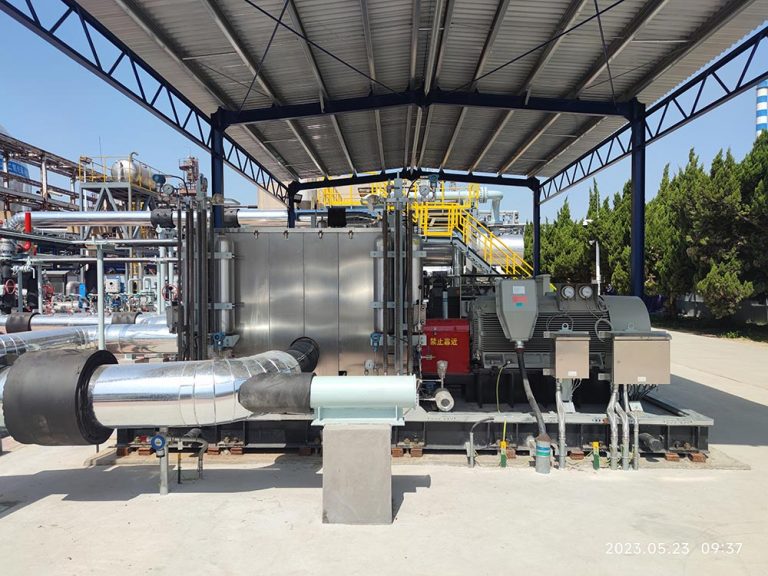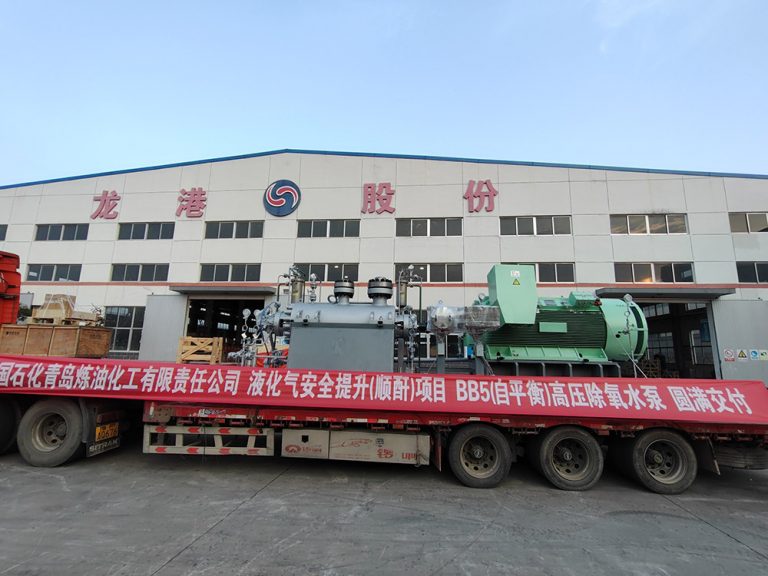How API Pumps Guarantee Precise Dosing in Controlled Volume Applications
Understanding API Pumps
Definition and Functionality
API Pumps, widely recognized as American Petroleum Institute pumps, play a pivotal role in various industrial sectors. These pumps are engineered to adhere to rigorous standards for performance and dependability as set forth by the American Petroleum Institute. The primary purpose of API Pumps is to transport fluids with steady, controlled flow rates, which is crucial for accurate dosing in multiple industries. Their durable construction and unique design allow them to manage an extensive array of fluids, whether they are viscous, corrosive, or clean, guaranteeing a stable operation.
Importance in Industrial Applications
In industrial settings, the necessity for precise, dependable fluid transfer cannot be overstated. This is where API Pumps come into play. They are not just ordinary pumps but meticulously engineered solutions that bring reliability and efficiency to the workflow. Specifically, in environments that require strict adherence to dosing volumes, such as chemical processing, pharmaceutical manufacturing, and water treatment, API Pumps ensure that every drop of liquid is accurately dosed. The reliability and effectiveness of these pumps mean lower operational costs and reduced downtime due to maintenance.
In the intricate dance of chemical reactions and processing, the reliability of each apparatus is crucial. Yantai Longgang‘s API 610 centrifugal pumps provide the assurance of continuous, safe, and efficient operation, which is why they are an excellent choice for those in the field of chemical processing. Their pumps are not just mechanical devices but vital instruments that contribute to the meticulous orchestration of chemical industry operations.
Yantai Longgang’s expertise in the design and production of centrifugal pumps is underscored by their adherence to the API 610 standard. This standard is not merely a set of guidelines but a rigorous framework that ensures pumps are capable of operating in the challenging environments characteristic of chemical processing, where they may encounter aggressive chemicals, high temperatures, and variable pressures.
Mechanisms Ensuring Precision in Dosing
Advanced Calibration Features
One of the standout features of API Pumps is their advanced calibration capabilities. These features are crucial for applications requiring high precision in dosing. The ability to fine-tune the pump to deliver exact quantities ensures minimal waste and maximum efficiency. This calibration is often supported by sophisticated software that allows operators to set specific flow rates and track performance in real-time. By maintaining stringent control over the dosing process, these pumps enhance the reliability and consistency of the operations they support.
Automated Controls and Adjustments
Automation is another critical factor that enables API Pumps to deliver precise dosing. Equipped with state-of-the-art control systems, these pumps can adjust their operation based on real-time data, ensuring optimal performance. Automated controls can detect and respond to changes in pressure, flow rate, or fluid properties, making necessary adjustments on the fly. This dynamic adaptation minimizes human error, maintaining consistent dosing levels across varying conditions. Furthermore, these automated systems often integrate seamlessly with other industrial control systems, enhancing overall operational efficiency.
Materials and Construction Quality
The materials and construction quality of API Pumps are crucial in ensuring their performance. These pumps are usually made from highly durable materials capable of withstanding tough operational environments. High-grade stainless steel, specialized alloys, and corrosion-resistant materials contribute to their longevity and reliability. Proper material selection reduces the wear and tear caused by abrasive or corrosive fluids, thereby maintaining dosing precision over long periods. Such durability is vital for minimizing maintenance needs and ensuring consistently high performance.
Control Volume Application Scenarios
Chemical Processing Industry
In the chemical processing industry, precision in fluid dosing is critical. API Pumps play an indispensable role in this sector by ensuring accurate delivery of reactive chemicals, solvents, and other compounds. Precise dosing is paramount to maintaining safety and efficiency in chemical reactions. Any deviation can lead to suboptimal product quality or even dangerous situations. With API Pumps, chemical plants can maintain a stable production process, enhancing both the quality and safety of their operations.
Pharmaceutical Manufacturing
Pharmaceutical manufacturing demands the highest standards of precision, consistency, and cleanliness. API Pumps are integral in this context, where the exact dosing of ingredients directly affects the efficacy and safety of medications. These pumps ensure that every drug batch meets rigorous quality standards by delivering precise amounts of active ingredients and excipients. The advanced control features also support compliance with regulatory requirements, which is crucial in pharmaceutical production. By utilizing API Pumps, pharmaceutical companies can achieve optimal mixing, formulation, and dispensing of their products.
Water Treatment Facilities
Water treatment facilities benefit significantly from the precision of API Pumps. These facilities often require the accurate dosing of chemicals to purify and treat water, such as chlorine, flocculants, and pH adjusters. API Pumps provide the necessary control to maintain water quality standards, ensuring safe and potable water for consumption. The pumps’ automated controls facilitate seamless integration into water treatment systems, allowing for real-time adjustments based on water quality sensors. This adaptability ensures a consistent supply of clean water, directly contributing to public health and environmental protection.
Through the integration of sophisticated calibration features, automated controls, and premium materials, API Pumps deliver dependable and precise dosing across numerous industrial applications. Be it in chemical processing, pharmaceutical manufacturing, or water treatment industries, these pumps offer the precision and consistency necessary to uphold high operational standards.

Innovations and Technological Advancements
Recent Developments in Pump Technology
The field of pump technology has seen remarkable advancements in recent years, particularly in the realm of API Pumps. Recent developments have focused on enhancing efficiency, reliability, and precision, responding to the increasing demand for higher performance in industrial applications. Innovations such as magnetic drive systems improve seal-less pump operations, reducing the risk of leaks and contamination. Precision-engineered components have been developed to optimize flow paths, reducing turbulence and enhancing dosing accuracy. These advancements collectively contribute to the more effective and reliable operation of API Pumps in controlled volume applications.
Integration with Smart Systems
Smart systems integration is another groundbreaking advancement within API Pumps technology. This integration allows for real-time monitoring and management of pump operations through IoT (Internet of Things) devices and smart sensors. These smart systems can automatically adjust pump parameters to optimize performance based on environmental conditions and fluid characteristics. Additionally, predictive maintenance features enabled by AI algorithms can foresee potential issues before they escalate, ensuring continuous operation and minimizing downtime. By incorporating smart technologies, API Pumps not only maintain precise dosing but also significantly enhance overall process efficiency and reliability.
Considerations for Selecting the Right API Pump
Key Factors to Evaluate
When selecting the appropriate API Pump for an application, several key factors need to be carefully evaluated to ensure optimal performance and suitability. Fluid Properties should be considered foremost, as the pump must be compatible with the viscosity, corrosiveness, and particulate content of the fluid being handled. Secondly, Flow Rate Requirements must be scrutinized to ensure the pump can meet the specific dosing volumes needed for the application. Additionally, Pressure Specifications are critical, since the pump must operate effectively within the given pressure constraints of the system. Lastly, Material Compatibility should be assessed to ensure the pump’s components can withstand the chemical and physical properties of the fluid, thereby ensuring durability and performance longevity.
Maintenance and Operational Efficiency
Maintenance is a critical factor when evaluating API Pumps for industrial uses. Although these pumps are built for durability and dependability, consistent maintenance schedules are essential to maintain their efficiency. Maintenance tasks include regular inspections, calibrations, and replacing worn components. Innovations in pump design have made maintenance procedures more straightforward, thus minimizing the frequency and intricacy of necessary interventions.
Operational efficiency is another vital consideration. Efficient API Pumps not only provide precise dosing but also consume less energy and require minimal human intervention. Automated systems and smart technologies built into the pumps enhance their operational efficiency, allowing for seamless integration into existing workflows. Choosing an API Pump with proven operational efficiency can lead to significant cost savings and enhanced reliability, making it a prudent investment for any industrial application.
In conclusion, API Pumps represent a technologically advanced solution for achieving precise dosing in controlled volume applications. With ongoing innovations and smart system integrations, these pumps are becoming even more reliable and efficient. Proper selection and maintenance of these pumps are crucial for optimizing their performance and operational longevity. By understanding the latest advancements and key considerations, industries can leverage API Pumps to enhance precision, reliability, and overall efficiency in their dosing applications.
Yantai Longgang Pump Industry is a qualified supplier of CNPC, Sinopec, and CNOOC etc. It provides mature solutions for pumps in petrochemical equipment and provides key pumps for many domestic installations and applications such as tens of millions of tons of oil refining and millions of tons of ethylene.for coal chemical industry, we are providing a large number of key station pumps for coal gasification, coal liguefaction, coal to methanol, coal to dimethyl ether, coal to olefins and other devices.
The company emphasizes product quality and service, strengthens quality system management, has successively passed ISO9001:2008 quality system certification, American Petroleum Institute API quality system certification, etc., and the products have been praised by customers. Excellent quality and good service have made the company a Grade A supplier of China National Petroleum Corporation, qualified suppliers of Sinopec, CNOOC, China Chemical Group, and China National Salt Industry Corporation. While serving customers wholeheartedly, Longgang shares gradually formed a corporate culture of “dedication, unity and cooperation, integrity, pragmatism, efficiency, and innovation,” realizing the common development of the enterprise and employees, and resource sharing and win-win cooperation with customers.








